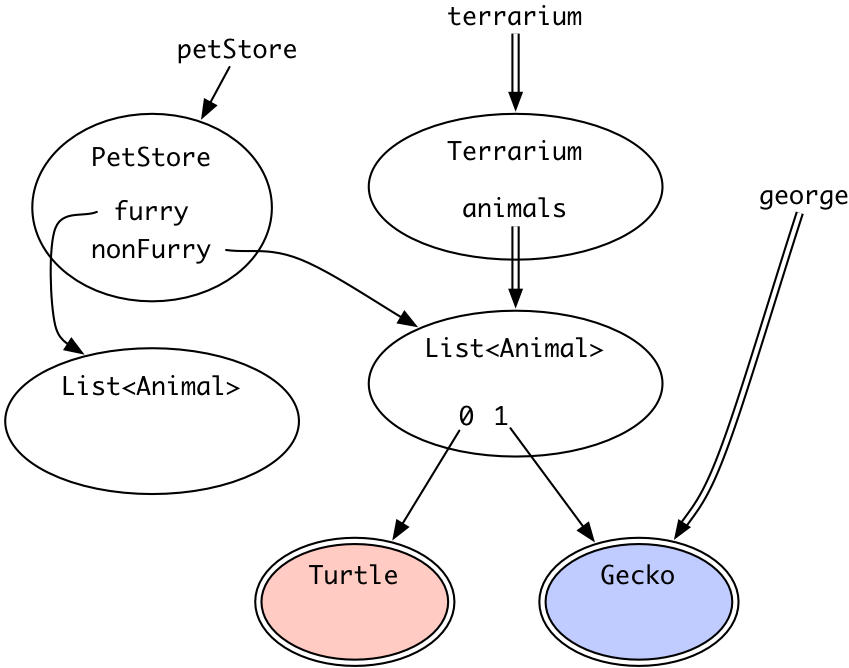Why Are Strings Immutable in Java? Finest Practices and Use Situations
Wiki Article
Discovering the Advantages of Unalterable Strings in Modern Programs Paradigms
In the world of modern-day programming paradigms, the idea of immutable strings stands as a cornerstone of durable software development. By embracing immutable strings, designers can guarantee improved information stability, enhanced string safety, streamlined debugging procedures, enhanced security measures, and reliable performance optimization.Boosted Data Honesty

By protecting against the adjustment of string items, immutability gets rid of the risk of unintended adjustments to the information they hold. This not just improves the protection of the details yet additionally improves the integrity of the code that depends on these strings.
Immutability additionally supports much safer multithreading settings, as concurrent access to immutable strings does not present the risk of information corruption through simultaneous alterations. This home streamlines the process of dealing with strings in parallel programming scenarios.
Essentially, immutability serves as a safety guard around the data kept within strings, improving their integrity by making certain that once specified, their values remain unmodified throughout the program's execution.

Enhanced Thread Safety And Security
Immutable strings boost the string safety and security of programs by ensuring that when a string item is produced, its value can not be modified. This residential or commercial property gets rid of the threat of concurrent strings trying to change the very same string concurrently, which could bring about information corruption or inconsistent states in the program - Why are strings immutable in Java?. In a multi-threaded setting, where multiple threads gain access to and control data at the same time, the immutability of strings gives a degree of safety by guaranteeing that the information continues to be the same throughout its lifecycleSimplified Debugging Processes
Offered the boosted thread security assisted in by unalterable strings, a significant advantage occurs in the world of streamlined debugging procedures. Immutable strings, as soon as produced, can not be modified, making it simpler to map the flow of data and identify the resource of insects in a program. This immutability guarantees that strings continue to be consistent throughout the implementation of the program, reducing the possibility of unforeseen adjustments that might cause mistakes.When debugging with mutable strings, designers frequently come across problems where a string's value is customized unintentionally, making it challenging to pinpoint the source of an insect. However, with immutable strings, the data stays unchanged, permitting developers to concentrate on evaluating the real logic of the code rather than locating where and when a string was modified improperly.
In addition, immutable strings simplify the debugging procedure by enabling much easier reproduction of pests. Given that unalterable strings do not change state, designers can recreate and research insects better, bring about quicker recognition and resolution of concerns within the codebase. This structured debugging process eventually adds to higher software program top quality and improved overall development effectiveness.

Boosted Protection Steps
Enhancing information security and strengthening system honesty, the usage of immutable strings in find out this here software program applications adds significantly to raised safety measures. Immutable strings, once developed, can not be modified, giving a crucial defense versus destructive meddling or unapproved accessibility. By guaranteeing that delicate information saved in strings continues to be unaltered throughout the program's execution, the click for info risk of information violations or injection strikes is substantially reduced. Why are strings immutable in Java?. Unalterable strings also play an essential duty in preventing typical safety and security susceptabilities such as barrier overflows and SQL shot attacks, as efforts to manipulate string information at runtime are naturally limited.Furthermore, the immutability of strings improves the predictability of program habits, making it simpler to validate inputs and stop unforeseen adjustments that can compromise protection. This predictability streamlines the process of bookkeeping and validating code, allowing designers to identify possible protection technicalities better. Overall, integrating immutable strings right into software application development practices not only boosts the toughness and dependability of applications yet likewise enhances their resilience against security hazards.
Effective Performance Optimization
When dealing with mutable strings, procedures like concatenation or substring production commonly result in the development of new string objects, leading to memory overhead and increased processing time. By enabling strings to stay stable and continuous, immutable strings assist in much better memory administration and caching opportunities, ultimately boosting the general efficiency of the software program.
Unalterable strings also play an important role in multithreaded settings by advertising string safety. Why are strings immutable in Java?. Because immutable strings can not be modified when developed, they can be shared throughout threads without the danger of unanticipated changes, lowering the need for synchronization systems and improving concurrency. Furthermore, immutable strings simplify debugging processes as developers can rely on that a string's worth will remain constant throughout the program's implementation, removing potential errors triggered by mutable state adjustments. In final thought, the use of immutable strings not only boosts protection however also substantially adds to navigate to this website the effective efficiency optimization of modern software systems.
Final Thought
To conclude, the benefits of utilizing unalterable strings in modern programs standards can not be overstated. Boosted data honesty, enhanced string safety, streamlined debugging processes, enhanced safety steps, and efficient performance optimization all add to the total efficiency of programming jobs. By incorporating unalterable strings right into programming methods, developers can benefit from a more robust and reliable codebase.Immutability, a vital feature of strings in programs languages such as Java and Python, ensures that when a string object is developed, it can not be altered or changed.Unalterable strings improve the thread safety of programs by making sure that once a string item is produced, its worth can not be modified. Immutable strings also play a vital duty in avoiding common protection vulnerabilities such as barrier overflows and SQL injection strikes, as attempts to manipulate string data at runtime are naturally limited.
By allowing strings to stay constant and stable, immutable strings facilitate far better memory management and caching possibilities, inevitably increasing the overall efficiency of the software application.
Immutable strings streamline debugging procedures as programmers can rely on that a string's worth will remain constant throughout the program's execution, getting rid of possible mistakes caused by mutable state modifications.
Report this wiki page